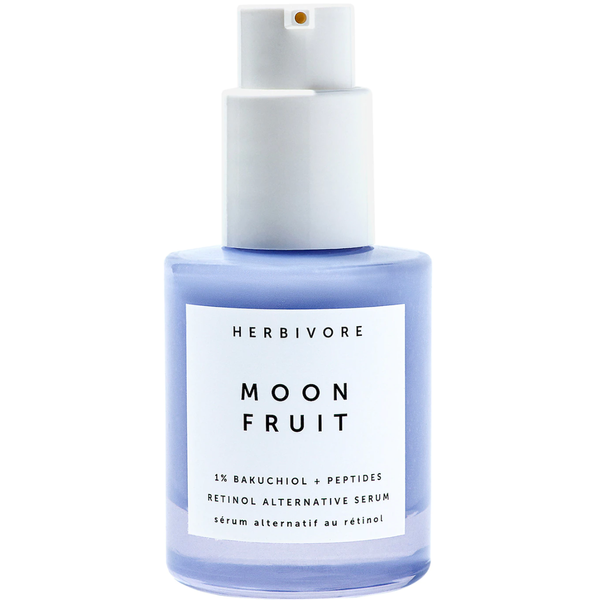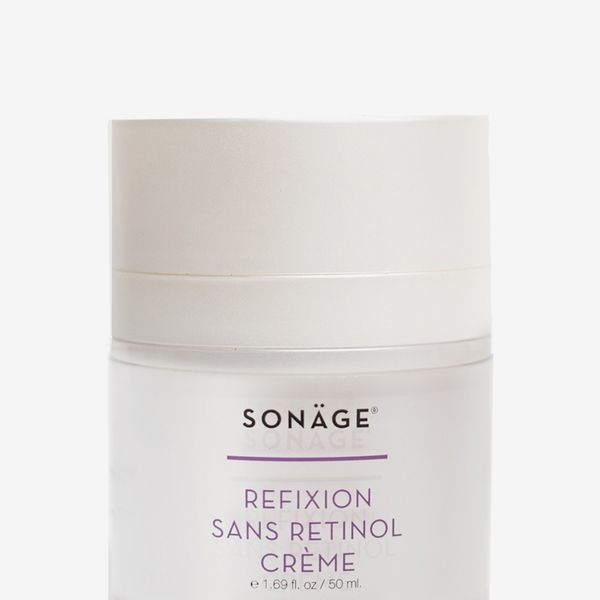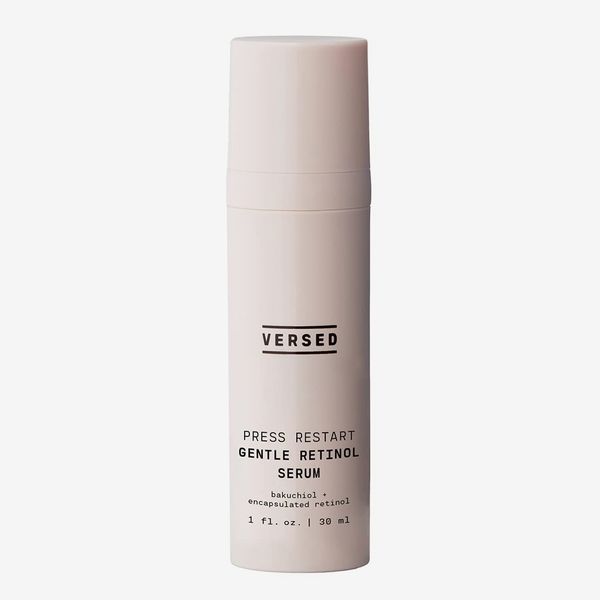
Back in 2018, we wrote about the ingredient bakuchiol as a promising retinol alternative. Six years on, you’ll find it listed in skin-care products from luxury (Isdin, Allies of Skin) to affordable brands (The Inkey List, Burt’s Bees). “It’s popular because it is excellent timing with the clean-beauty movement, has great marketing, and has a decent amount of data to back it up,” says cosmetic chemist Julian Sass. But what exactly is it, how does it work, and does it really hold up next to retinol?
What is bakuchiol?
Bakuchiol comes from the seeds of the Psoralea corylifolia (also known as the babchi plant), a plant traditionally used in Ayurvedic and Chinese medicine. It’s an isolated extract that’s said to be less irritating than chemically-synthesized compounds. When applied topically, it activates certain receptors in the skin that promote cell turnover. It’s also an anti-oxidant, and there are studies showing that it’s anti-microbial.
What does bakuchiol actually do?
Because of all of the above, it helps minimize the appearance of fine lines and wrinkles, protects skin from free-radical damage, and helps combat acne. On top of all these benefits, it’s much more tolerable than other actives with similar benefits, like vitamin-A derivatives (retinol).
What’s the difference between bakuchiol and retinol?
Retinol and bakuchiol get compared often, mainly because both promote cell turnover. But, the two do so by targeting different skin receptors. “It’s like retinol is hitting certain light switches, and bakuchiol is hitting different switches, but the actual output is similar,” explains Sass. “Both are hitting different lights in the same room.” This is why bakuchiol isn’t as harsh on the skin as retinol and is better tolerated, and why it’s often recommended to people with sensitive skin or rosacea.
How do the results differ?
Bakuchiol isn’t as instantly effective as retinol. To take the light analogy further, retinol is like flipping a light switch and bakuchiol is like slowly pushing up a dimmer switch. “Even with the data we have on bakuchiol versus retinol, in those studies they were using retinol once a day and the bakuchiol twice a day and claiming the results were similar,” says Sass. “To me, that means that bakuchiol works half as fast as retinol. People kind of expect those instant retinol results when that’s probably not what you’re going to get with bakuchiol.” Vitamin-A derivatives are still the gold standard for anti-aging, and bakuchiol is a gentler (albeit slower) alternative.
Should you avoid other actives with bakuchiol?
Even though it’s better tolerated, experts have differed on whether bakuchiol can be mixed with commonly irritating actives like benzoyl peroxide, retinoids, and highly concentrated vitamin-C serums. Dermatologist Dr. Dendy Engelman says it should be safe, unless someone has a known sensitivity to certain active ingredients. If you’re a veteran retinoid user, she even suggests that bakuchiol and retinol could work together to increase benefits. If you’re turning to bakuchiol because you can’t tolerate retinol, cosmetic chemist and The Beauty Brains co-host Valerie George says to avoid mixing it with other actives since any increased cell turnover can lead to skin sensitivity. And if you have normal skin, start with bakuchiol on its own and introduce other products to see how your skin reacts.
What about babchi oil and babchi extracts?
As you’re shopping for a bakuchiol product, an important thing to look for that may seem obvious is that the ingredient list actually states “bakuchiol” in it. Both Sass and George brought up that it’s especially crucial if you’re looking for anti-aging benefits. Other common extracts from the Psoralea corylifolia plant are babchi extract and babchi oil, but you’re likely not getting the actual bakuchiol benefits. “When brands include babchi oil or babchi extract, it’s a much less expensive way to make claims about bakuchiol without having to actually spend money to put real bakuchiol in the product,” Sass explains. “You’re probably not going to see the benefits that you would with bakuchiol.”
Is bakuchiol pregnancy-safe?
Some bakuchiol products are marketed as “pregnancy-safe,” but that term is misleading, because there is no clinical data on people who have used bakuchiol while pregnant. “There’s a difference between an ingredient not shown to be harmful in pregnancy and pregnancy-safe,” says Sass. “Do I think that there is a high chance of bakuchiol being harmful? No, I don’t. But that data does not exist. Saying pregnancy-safe is going a little too far, in my opinion.” So, if you are considering using bakuchiol and you are pregnant, speak to your doctor first.
Some bakuchiol products we recommend
The Strategist is designed to surface useful, expert recommendations for things to buy across the vast e-commerce landscape. Every product is independently selected by our team of editors, whom you can read about here. We update links when possible, but note that deals can expire and all prices are subject to change.









